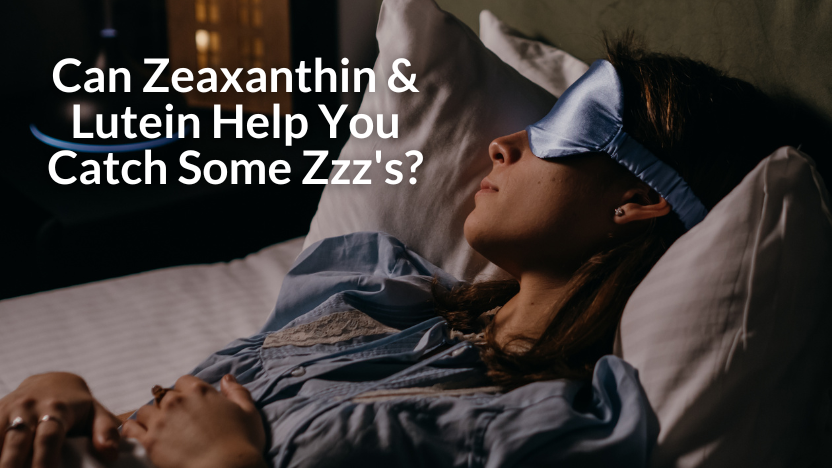Zeaxanthin, Lutein, and Sleep
Posted by EyePromise on Sep 8th 2022
In a device-heavy society that emphasizes staying connected at all times, it can be difficult to turn it down a notch. When your mind is continuously connected to smartphones, tablets, etc., shutting down to go to sleep can be a challenge. But calming the mind isn’t the only thing that can keep you from sleeping.
Digital Devices & Their Effect on Sleep

Surveys have found that the average American spends nearly 11 hours a day viewing digital screens (i.e., phones, tablets, TVs, computers, etc.). The digital devices we use to keep in touch with society emit harmful blue light, which has been proven to inhibit sleep cycles. A Harvard study directly researched the effects of blue light on melatonin production by comparing it to green light.
After a 6 ½ hour exposure, blue light suppressed melatonin for twice as long as green, disrupting the sleep cycle, otherwise known as circadian rhythm, by 3 hours as opposed to 1 ½. Blue light also increases the secretion of cortisol, a hormone linked to wakefulness and stress, adding to sleep deprivation. These disruptions make it difficult to fall and stay asleep, impacting the quality of sleep as much as the quantity.
An Unlikely Sleep Aid
One study proved that an increase in macular pigment, the body’s natural filter for blue light, can help mitigate its effect on sleep. Researchers observed that the participant group supplementing with dietary zeaxanthin and lutein saw significant improvements in the following:

- Macular pigment protection
- Sleep quality
- Headache frequency after screen use
- Eye strain and fatigue
- Contrast sensitivity
- Disability glare/photo-stress recovery
The researchers stated,
“…supplementation with [dietary zeaxanthin and lutein] led to significant improvements in each of the visual measures, a significant improvement in sleep quality, and a significant reduction in the frequency of headaches [after screen use], eye strain, and eye fatigue.”
Improving Sleep with Eye Vitamins
When it comes to improving sleep, you first need to improve macular pigment protection. The eyes respond best to natural ingredients, as that’s what they’re used to getting. However, dietary zeaxanthin is incredibly scarce and difficult to get through food alone, so most healthcare professionals recommend supplementing with an eye vitamin.
EyePromise® is the #1 eye doctor-recommended eye vitamin available. EyePromise vitamins are crafted with the highest quality ingredients and formulated by experts to deliver proven benefits. With the highest amounts of dietary zeaxanthin available, EyePromise eye vitamins are the only line of vitamins guaranteed to increase your macular pigment.
Sleep impacts physical, mental, and emotional health, but we often think about it the least. Make sure you’re setting up your circadian rhythm for success by starting an EyePromise eye vitamin regimen. Check out our full product lineup and find out which EyePromise vitamin is right for you!


